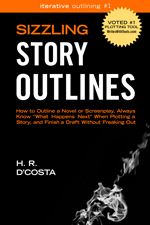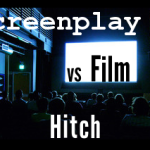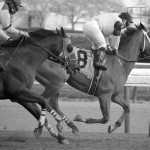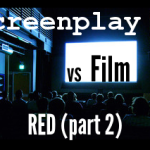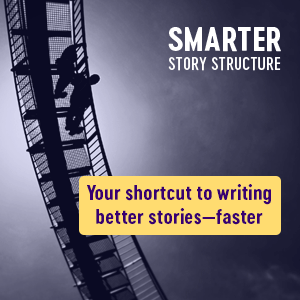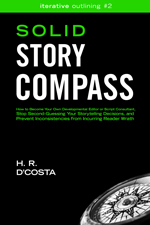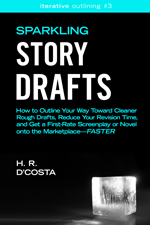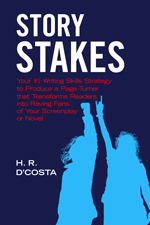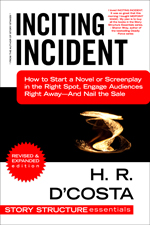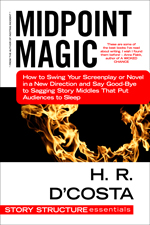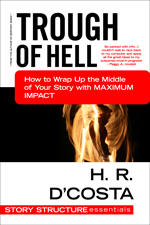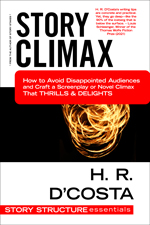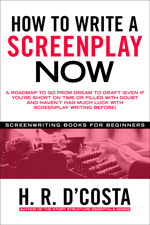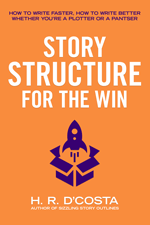Imagine, for a second, that your favorite screenplay heroes are gathered around your dining room table for Thanksgiving dinner.
Your dad rubs the carving knife against a two-tined fork in preparation to slice the turkey.
Your niece, a vegetarian, shoots him dark looks from her perch next to the whole berry cranberry jelly.
The scent of burnt sugar, wafting from a slightly overdone sweet potato marshmallow casserole, tickles your nose.
But no one can dig into the feast–not before they give thanks. Following tradition, the guests–your favorite screenplay heroes–go first.
When Heroes Give Grace
James T Kirk proclaims he’s grateful Spock banished him to the icy planet Delta Vega (STAR TREK, 2009).
Andrew Paxton is glad his fiancée, Margaret, jilted him at the altar (THE PROPOSAL).
Sherlock Holmes is thankful he was almost killed by Professor Moriarty’s henchmen (SHERLOCK HOLMES 2: GAME OF SHADOWS).
Mouths agape, your family stares at each hero in turn. Who would be grateful for such catastrophes?
Your family doesn’t realize that these movie heroes have shucked conventional thanks for a reason. These heroes are acknowledging a paradox of storytelling, a paradox of life:
The very last thing a hero may want is the very thing he needs in order to achieve his goal.
- If Spock hadn’t banished Kirk to Delta Vega, Kirk wouldn’t have encountered Future Spock, whose insight enables Kirk to assume command of the Starship Enterprise.
- If Margaret hadn’t jilted Andrew at the altar, he wouldn’t have realized how much he really loved her.
- If Professor Moriarty’s henchmen hadn’t pursued Holmes, he wouldn’t have realized the professor could create identical twins via plastic surgery, knowledge which enables the detective to unravel the professor’s evil plans.
In other words, seeds of victory can sprout from the field of defeat…if your hero just hangs in there without giving up.
This concept was thoroughly embraced by JRR Tolkien, who even coined his own term for it: eucatastrophe. In a DVD featurette on the special extended edition of THE RETURN OF THE KING, Tolkien scholars expound on the concept:
However dark and bad and terrible things seem, there is a moment of turning, a moment when dark is turned to light, when dawn dispels the night. He called it the “eucatastrophe.”
Well, we have a very familiar term, you know, “catastrophe,” which is a sudden turn from good to bad. And Tolkien said that, actually, there out to be the opposite of this which is eucatastrophe, which is the sudden and unpredicted and unpredictable turn from bad to good.
Tolkien related the eucatastrophe to the story of Christ, to the idea that out of the tragedy of Crucifixion…could come salvation for all mankind.
And Tolkien finds it not only in the Resurrection, but also, powerfully, in fairy tales.
In Tolkien’s eyes, eucatastrophe is particularly applicable to the end of stories. It’s that moment within the climax, when it appears that, despite his best efforts, the hero will be defeated…only, the tides suddenly turn in his favor.
While Tolkien focused on the eucatastrophe within the climax, for screenwriters, the most important application of this concept is probably at the end of Act Two.
In the majority of scripts, this is when the hero incurs a major setback…but somehow, that defeat is exactly what the hero needs to achieve complete victory.
However, the shift from negative to positive can happen anywhere in a screenplay, not just at its climax or Act Two ending. With that in mind, I give you:
A Lord of the Rings Thanksgiving
Passing around a pouch of Longbottom Leaf, the nine members of the fellowship gather together to give thanks for events which they may’ve cursed in the moment, but which, in hindsight, ultimately enabled their goal: to destroy the ring of power.*
Boromir (his ghost rather): I am grateful to have died because my sacrifice gave more time for Frodo to elude the Uruk-hai. Also, I was able to redeem myself in battle.
Merry: I am grateful that Pippin and I were abducted by the Uruk-hai. By getting separated from the rest of the fellowship, we were able to convince the Ents to join the fight to protect Middle Earth.
Pippin: I am grateful that I looked directly into the palantir, even though it drew Sauron’s focus towards me, because we were able to glean the strategy behind his next attack.
Gandalf: I am grateful I died in battle with the Balrog because this enabled me to reincarnate in a new form, as Gandalf the White. As the White Wizard, I was able to free King Theoden from Saruman’s mind control, something outside of Gandalf the Grey’s purview of magic.
Aragorn: Even though she risked death, I am grateful that Arwen gave up her immortality, because that enabled me to cast off my self-doubt and claim my destiny as the true king of Gondor.
Legolas: Even though my friend Haldir died, I am grateful that my elven brethren came to our aid at Helm’s Deep. They enabled us to hold off Saruman’s army until Gandalf arrived with reinforcements.
Sam: I am grateful that Gollum caused Frodo to question my loyalty. Because of this, we entered Shelob’s cave separately. If we had entered together, it would’ve been less likely I would’ve been able to save Frodo from the giant spider.
Frodo: I am grateful that my uncle, Bilbo, spared Gollum’s life, and that the wretched creature stalked me and Sam. At the crucial moment atop Mount Doom, I had succumbed to the ring’s power. If Gollum hadn’t tried to steal the ring for himself, it would not have been destroyed. To borrow Gandalf’s words, “the pity of Bilbo ruled the fate of many.”
Note: one member of the fellowship, the dwarf Gimli, is missing from this list. That’s because I couldn’t think of any eucatastrophic events which applied to him in particular. Any suggestions are appreciated!
Update: SMW readers Lori and Leo came up with a eucatastrophic event for Gimli–
I am grateful that I questioned Legolas about his loyalty at the Council of Elrond and started an argument. Otherwise Frodo would never have decided to take the ring to Mordor.
Sounds good to me! Thanks Lori and Leo!
* These examples are taken from the special extended DVD editions of the films, not the theatrical versions, nor the original source material.
Whether you’re familiar with the movie trilogy or not, I hope examining each hero’s “blessing in disguise” will aid you in constructing a tightly woven plot of your own.
Q & A: Query and Action
Query: What negative event in your life led to a positive benefit you didn’t anticipate?
Scribe Action Step: Examine an old screenplay draft, notes on your current project, or your favorite film. List all the setbacks incurred by your hero. How many of them lead to positive consequences (however small)?
Share your response to the query, or your experience with the action step, (or both), in the comments section below!
Thanksgiving Pumpkins by John-Morgan
